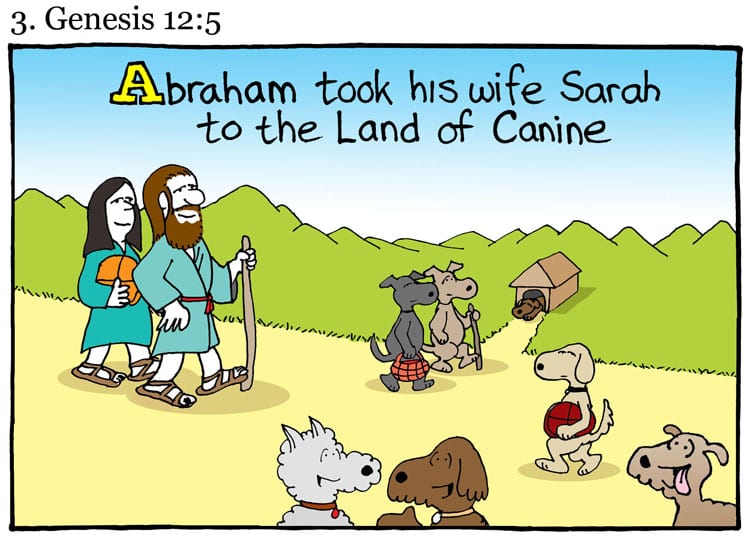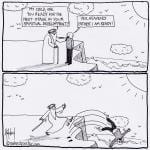I’ve been thinking more about the dogs or puppies in the story about the Syrophoenician woman. One aspect that is rarely discussed is the likelihood that the conversation – even if the woman was a “Greek” – that a Galilean and a Syrian or Phoenician would have had their conversation in Aramaic. The Syriac New Testament simply uses the word “dog” in its version of the story, even though Aramaic had a diminutive form of the word. Interestingly, the New Testament coins a diminutive rather than using the standard Greek one. And so I find myself wondering whether Jesus’ language might not have been toned down already by the Gospel authors, even as subsequent interpreters have sought to do so even more.
Before I draw any sweeping conclusions, though, I’d love to hear from those who work on Aramaic and related matters, and/or the Syriac Gospels, to hear more from you about how much weight to put on the fact that the Gospels in Aramaic simply say “dogs” where the Greek Gospels sought to suggest “little dogs” and perhaps render the term slightly less jarring or more endearing.
Regardless of this particular question, however, it must be noted that even household dogs in the ancient world were not the full-fledged family members that modern-day dogs and cats (and occasionally other animals) are prone to be.
On this story in the Matthean version see Jonathan Rowlands’ article “Difficult Texts: ‘A dog at the table’ in Matthew 15.21-28,” available through Academia.edu.
To conclude today’s thoughts on the subject, no matter what information we find from ancient times, I think that it is safe to say that this will always be an example of an instance in which a natural reading of the reference to “dogs” today will never be precisely the impression the story conveyed in ages past. Even a well-informed reading, if we can determine what that should look like, will still be a different reading experience than one that reacted spontaneously to the language as readers could safely be expected to in the author’s time and location.
Finally, for your amusement…














